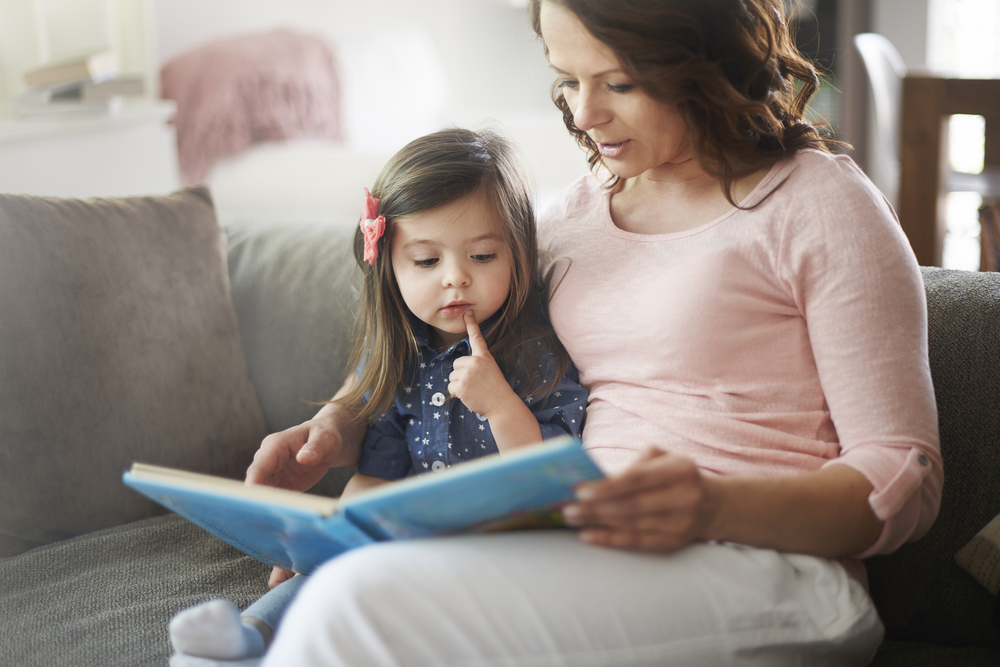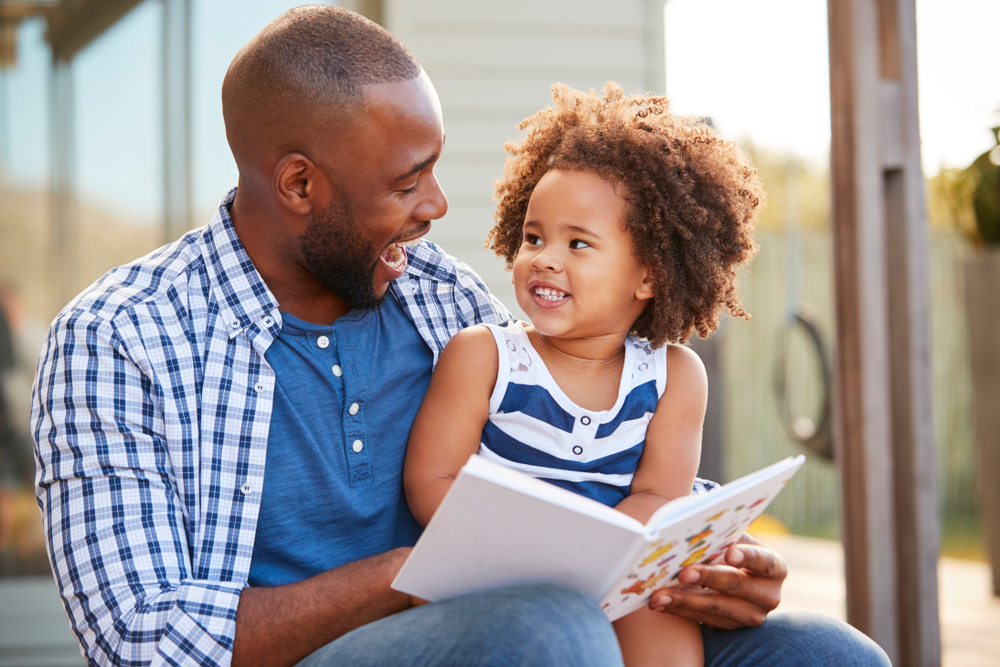
Reading is an important part of life. Everything we do has some component of reading involved in it, from shopping to driving to following a recipe. Building good reading skills is important to ensure a good quality of life.
Anyone who’s ever been engrossed in a good novel, captivated by a comic book, or watched a movie with subtitles knows that reading can also be enjoyable. Books, magazines, blogs, and video games can be fun even when they are non-fiction, as long as they capture our imaginations.
Children are like fertile fields of imagination, just waiting to be planted and to grow. Reading is a skill that can be encouraged in kids as early as infancy by providing a good model. The best way to encourage kids to read is to read to them.

What the Experts Say About Reading
Studies back the benefits of reading to children on a variety of developmental axes. Children who are read to a few days a week developed their reading skills faster than children who are not. These traits are more prevalent the more often a child is read to each week.
Academic success from encouraging kids to read is enhanced by a variety of other benefits. Kids who are read to from a young age have high rates of cognitive development and show more creative thinking. They also get better grades in school, and this trend lasts for kids who are read to up to age 14.
How Does Reading to Kids Help Them Grow?
Reading helps kids explore the world around them, and reading to them can start this process early. Children love to hear language and words, and they pick them up from hearing them spoken as early as infancy. Even if it doesn’t seem like an infant or toddler is paying attention, eventually they do learn to sit and listen. Starting to read to them in infancy can teach them to sit still early, even if they are eating the pages as babies.
So what are children absorbing when you read to them, and how can it help them later in life?
How to Think
Cognitive development is when children learn to think, reason, and process the world around them. Reading to kids helps this process by teaching them to develop ideas and build upon them. As they learn new concepts they learn to put them together into thoughts and more complex ideas.
As people learn new ideas, the brain generates neural pathways to remember this knowledge. Children are constantly learning new ideas, and a human brain grows faster in childhood partly because these new connections are being made more rapidly than at any other time in life.

Learning More Words
Reading to young children grows their vocabulary even before they start reading on their own. Children love the sound of other people’s voices, especially when spoken in sing-song “parentese,” and they learn new words from hearing them spoken. Often, books will include words we don’t use in everyday life, for example referring to an oak tree rather than simply a tree. Reading to children introduces these words. It’s okay to read books that may be above your child’s reading level because it will still benefit them when it comes time to read on their own.
Spark Conversation About Reading
Your children’s critical thinking and social skills are enhanced by reading to them even when you’re not actively reading to them. Talking about what you read will encourage them to further engage in the ideas in the material. It also lets them know that they can talk to you, especially when they ask questions about your reading at other times. As children learn to consider ideas, they will ask more questions and learn even more from the answers and discussions they generate. Plus, they will learn to ask questions.
How Our Language Is Constructed
When children get used to hearing older people around them speaking, they also pick up the structure of the language being spoken. Very quickly, children are able to put together short sentences and are aware of the subject and action in phrases like “me want.” The more they hear us talk, the more complex rules they will pick up, making longer and more descriptive sentences.
However, most people do not speak the same way they write. Spoken language is often less formal than the written word, and reading to kids gives them an awareness of this difference well before they’re exposed to grammar in school.
Forming Their Own Ideas
Along with learning how to think, reading promotes critical thinking, or the ability to consider and compare ideas. This helps them learn about themselves, including what they like and dislike, and what their opinions are.
Forming independent thoughts and ideas is also aided by creativity, and creativity is enhanced by introducing new ideas. When children hear new ideas that inspire them, they begin to experiment with new ways to engage. Creativity is an important part of problem-solving, and children who have been read to often have a head start on this element of critical thinking.

Strengthen Relationships
Reading to children builds bonds with parents and other caregivers because it provides regular time to spend time together, reading and talking about whatever the reading inspires. Every moment with your child is precious, and reading helps you both spend time interacting together. By introducing new topics, it also creates a foundation for other activities you and your child can do together.
Spending time with your child builds trust and intimacy, and models building these qualities in future relationships your child will form, such as with extended family, friends, and partners. Talking with your children about the ideas inspired by reading shows them that they can discuss or ask questions about other things.
Renaissance Kids
Reading teaches children about many different subjects. Even one storybook at reading time might introduce agriculture, bricklaying, home-building, wood and trees, animals, and problem-solving. As children hear more stories and are exposed to different events, they will learn about the different topics associated with them. No matter what you read, there will be new topics for your child to explore, and each new topic opens a doorway to a whole new world for them.
Learning About Life
Some children’s books are themed for specific situations they might face such as moving, going to the dentist, the first day of school, or a new sibling. Reading such books to children can help prepare them for when they face these events in their lives. Children’s books cover a variety of childhood experiences, and gives parents and young children an opportunity to talk about how they affect the child’s life.
Kids Expressing Themselves
Reading is about telling stories, whether the story is how to assemble a toy or whether the knight slays the dragon. Being exposed to stories teaches children to tell their own story more articulately. Expanded vocabulary and a little skill at forming ideas can make it easier for kids to explain their thoughts and feelings. This can give them better control over their emotions and actions, because they can put words to their motivations and critically examine them.

Reading Helps Us All Grow
Reading is magical for kids of all ages. Everyone can learn from reading, but for children, the world is brand new and full of endless possibilities. Reading to your children is proven to help expand their understanding, opening these possibilities for them and igniting their interests and passions. The time you spend reading with your children not only benefits them through adulthood, but also gives you both memories that they can share with their own children.

 Español
Español